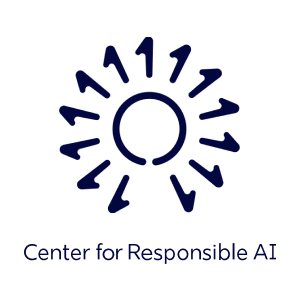By Rogério Canhoto, Chief Revenue Officer at Automaise
We live in an age of instant expectations. Same-day delivery, real-time updates, everything just a click away. The idea of waiting is no longer just inconvenient — it’s become unacceptable.
For customer service and operations leaders, this shift is not a passing trend. It’s a daily crisis. Because while customer expectations have accelerated, the systems and processes designed to serve them haven’t evolved at the same pace. And the cracks are starting to show.
Customers Don’t Wait — They Leave
Waiting is no longer a passive act. It’s perceived as being ignored. It generates frustration, weakens trust, and drives churn. In customer service, every delay is a missed opportunity to build loyalty — or worse, a reason for a customer to turn to the competition.
And when they finally reach a brand, their expectations aren’t simple. They want quick responses — but also personalized ones. They expect channel consistency — but also empathy and flexibility. Meeting all of this at scale is where traditional operating models begin to fail.
The Modern Service Dilemma
Frontline teams face a perfect storm:
- Contact volumes growing faster than teams can scale
- High agent turnover and lengthy training processes
- Fragmented systems and disconnected data slowing down responses
- Customers expecting 24/7 service without compromising quality
Many organizations try to respond with incremental fixes: queue optimizations, help centers, basic automations. But the truth is, patchwork solutions are no longer enough. Customers don’t want small improvements. They want real transformation. They want brands that respond like humans and scale like platforms.
Technology Isn’t the Whole Solution — But It’s the Enabler
What’s needed isn’t more staff or better scripts. It’s a new level of intelligence — one that can instantly scale, solve autonomously, and collaborate seamlessly with human teams.
That’s where AI Agents come in.
Unlike traditional bots, AI Agents understand context, continuously learn, and operate across systems. They don’t just react — they anticipate. They don’t just respond — they resolve. And they do it without increasing team workload or complicating infrastructure.
When strategically implemented, these agents enable organizations to:
- Provide real-time support, even at scale
- Automatically resolve repetitive or high-volume queries
- Assist human agents with real-time insights and suggestions
- Reduce escalations and avoid SLA breaches
- Adapt to demand spikes without hiring or training more staff
They don’t replace people. They empower them.
Why Now? Because the Gap Keeps Growing
The longer service modernization is delayed, the wider the gap between what customers expect and what brands can deliver. And that gap? Others are already figuring out how to fill it.
Today, service is no longer a post-sale function. It’s the frontline of brand experience. Every interaction is a chance to build trust — or to lose it. Customers remember how fast you responded, how easy it was to solve their issue, and how you made them feel.
And while speed is crucial, it’s not everything. What matters is accuracy, empathy, and context — without making the customer repeat their story or bounce between channels without resolution.
That’s why speed, empathy, and consistency are no longer optional. They’re the foundation. And AI is rapidly becoming the only way to deliver all three — simultaneously.
Small Steps, Big Results
Radical change isn’t required. The journey begins by identifying friction points: repetitive inquiries, process delays, and high operational loads.
Our experience in industries like banking, insurance, telecommunications, and retail shows the tangible impact of this evolution. For example:
- In banking, a 54% improvement in self-service rates was achieved with an AI-based digital assistant.
- In e-commerce, customer service response times improved by 48%.
- In telecom, agent productivity quadrupled in just 30 days.
- In logistics, first response times improved by 3.5x.
Over time, these agents become more deeply integrated — multiplying efficiency and improving the experience for both customers and teams.
This isn’t innovation for its own sake. It’s about building service operations ready for what’s next: dynamic, flexible, and human-centric.
The Future of Service Is Instant — and Human
It’s easy to think of AI as a replacement. But its true value lies in complementing. In freeing teams to focus on what really matters. In eliminating unnecessary waiting and creating seamless, memorable experiences.
Today, customer service is not a cost center. It’s a competitive advantage. And the leading brands will be those who see AI not as a trend — but as a strategic capability.
Because no one wants to wait. And with the right strategy, no one has to.
Want to know how AI Agents can transform your service operations?
At Automaise, we’ve spent over seven years helping companies across various sectors modernize their customer service through applied AI solutions. Our experience proves it’s possible to resolve faster, operate more efficiently, and deliver experiences that truly align with today’s customer expectations. Learn more at www.automaise.com






